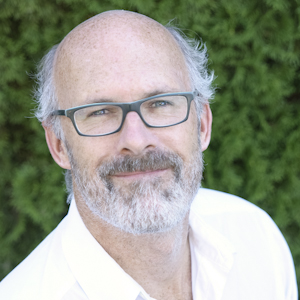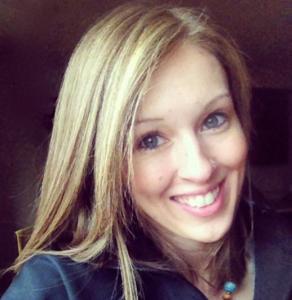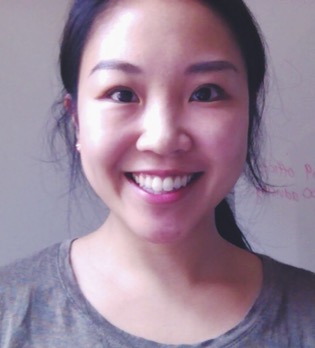Principal Investigators
Jennifer Ablow, PhD (Co-Director)
Associate Professor of Psychology
jcablow@uoregon.edu
 My research investigates the processes that underlie the intergenerational transmission of emotion regulation. For example, how is it that infants frequently come to manage their emotion in ways that are reminiscent of their parents? How do parents actually help their infants to regulate their emotions before they can actually do so for themselves? Within one line of research, I have merged attachment and psychobiological perspectives to identify both prenatal and neonatal markers of risk for insensitive parenting. By following parent-infant dyads forward, I then examine how parents’ emotional arousal and regulation shape similar emotion processes in their very young children (ages 0-3). In a second line of work, I examine how emotional arousal and regulation in the marital relationship “spill-over” to shape young children’s socioemotional development. Critical to this transmission process are children’s subjective appraisals of their parents’ marital dynamics, in particular, young children’s sense of distress about their parents’ conflict as well as the vulnerabilities that accrue to children who assume blame for their parents’ difficulties.
My research investigates the processes that underlie the intergenerational transmission of emotion regulation. For example, how is it that infants frequently come to manage their emotion in ways that are reminiscent of their parents? How do parents actually help their infants to regulate their emotions before they can actually do so for themselves? Within one line of research, I have merged attachment and psychobiological perspectives to identify both prenatal and neonatal markers of risk for insensitive parenting. By following parent-infant dyads forward, I then examine how parents’ emotional arousal and regulation shape similar emotion processes in their very young children (ages 0-3). In a second line of work, I examine how emotional arousal and regulation in the marital relationship “spill-over” to shape young children’s socioemotional development. Critical to this transmission process are children’s subjective appraisals of their parents’ marital dynamics, in particular, young children’s sense of distress about their parents’ conflict as well as the vulnerabilities that accrue to children who assume blame for their parents’ difficulties.
With my colleague Heidemarie Laurent, PhD, we also investigate the “maternal brain.” We are particularly interested in mapping the neural responses of depressed and nondepressed mothers to a variety of infant cues — cry, facial displays of emotion — to explain differences in parenting behaviors, infant attachment status, and infant neurobiology.one line of research, I have merged attachment and psychobiological perspectives to identify both prenatal and neonatal markers of risk for insensitive parenting. By following parent-infant dyads forward, I then examine how parents’ emotional arousal and regulation shape similar emotion processes in their very young children (ages 0-3). In a second line of work, I examine how emotional arousal and regulation in the marital relationship “spill-over” to shape young children’s socioemotional development. Critical to this transmission process are children’s subjective appraisals of their parents’ marital dynamics, in particular, young children’s sense of distress about their parents’ conflict as well as the vulnerabilities that accrue to children who assume blame for their parents’ difficulties.
Jeffrey Measelle, PhD (Co-Director)
Associate Professor of Psychology
measelle@uoregon.edu
 My research seeks to identify early sources of psychopathology in childhood, in particular, family processes that adversely influence the development of very young children’s psychobiology. A major focus of our work currently is parental sensitivity, which plays a critical role in shaping infants’ earliest development – both prenatally and neonatally — through processes of biological and behavioral synchrony. Within the context of sensitive versus neglectful or abusive parent-infant and parent-child relationships, I am particularly interested in how biological systems responsible for the regulation of emotions (autonomic nervous systems, hypothalamic-pituitary-adrenal-cortex) become coordinated with each other and with behavioral self-regulation. New investigations are underway within our lab examining the genetics of early self-regulation as well as pre- and neonatal epigenetic processes that support the development of self-regulatory systems in children at genetic risk for ADHD.
My research seeks to identify early sources of psychopathology in childhood, in particular, family processes that adversely influence the development of very young children’s psychobiology. A major focus of our work currently is parental sensitivity, which plays a critical role in shaping infants’ earliest development – both prenatally and neonatally — through processes of biological and behavioral synchrony. Within the context of sensitive versus neglectful or abusive parent-infant and parent-child relationships, I am particularly interested in how biological systems responsible for the regulation of emotions (autonomic nervous systems, hypothalamic-pituitary-adrenal-cortex) become coordinated with each other and with behavioral self-regulation. New investigations are underway within our lab examining the genetics of early self-regulation as well as pre- and neonatal epigenetic processes that support the development of self-regulatory systems in children at genetic risk for ADHD.
Global Children’s Development, Health, and Well-Being: Along with colleagues at Friends Without A Border, I am currently conducting baseline health and well-being research in Laos as well as conducting behavioral intervention research at the Angkor Hospital for Children in Siem Reap, Cambodia. This new direction for our lab will provide students interested in children’s development around the world with both basic science and applied research opportunities in Southeast Asia.
Graduate Students
Dorianne Wright
deganwr2@uoregon.edu

I’m interested in early childhood interventions that promote healthy child development and well-being among vulnerable populations in and outside of the U.S. I’m currently working on a project in Laos where we are piloting two early childhood interventions with parents of children ages 0-3, which promote sensitive and responsive caregiving and keeping a clean, hygienic environment for children. I’m also involved in research with low-income mothers in the U.S. that uses neuroimaging (fMRI) to examine how their brains respond differently to their infant’s cues (i.e., sounds/videos of crying/laughing) as a function of early adversity, psychopathology, and dispositional traits (i.e., mindfulness).
Michelle Fong
mfong@uoregon.edu
 My primary research interests are in the effects of early adversity on cognitive, social, and emotional development, as well as in mitigating these effects through evidence-based and culturally sensitive early intervention. The central goal of my dissertation is to conduct a randomized efficacy trial of an early intervention in Laos, a lower-middle income country in which only 5% of mothers regularly read or play with their children under age five, and half of all children fail to reach their full developmental potential. The evidence-based intervention, Care for Child Development, targets children birth to three, and supports children’s cognitive and social-emotional development through play and communication activities that also build on caregivers’ capacity to be sensitive and responsive. I culturally adapted the intervention and am in the process of collecting data on the program’s acceptability and feasibility in Laos, and its short-term effects on caregiving behaviors and child development. My hope is that this work will be a step towards increasing the accessibility of early psychosocial interventions in Laos.
My primary research interests are in the effects of early adversity on cognitive, social, and emotional development, as well as in mitigating these effects through evidence-based and culturally sensitive early intervention. The central goal of my dissertation is to conduct a randomized efficacy trial of an early intervention in Laos, a lower-middle income country in which only 5% of mothers regularly read or play with their children under age five, and half of all children fail to reach their full developmental potential. The evidence-based intervention, Care for Child Development, targets children birth to three, and supports children’s cognitive and social-emotional development through play and communication activities that also build on caregivers’ capacity to be sensitive and responsive. I culturally adapted the intervention and am in the process of collecting data on the program’s acceptability and feasibility in Laos, and its short-term effects on caregiving behaviors and child development. My hope is that this work will be a step towards increasing the accessibility of early psychosocial interventions in Laos.
Katherine Hagan
khagan@uoregon.edu
My research concerns infant emotion regulation as a function of early caregiving relationships. One of my current projects builds on existing measures of stress physiology among women expecting their first child. These measures are complemented by data on co-regulation of emotion and characterization of attachment in these same dyads. My aim is to bring these same mother-child pairs back into the lab twelve years after the mothers’ initial participation in the research, in order to understand continuities and discontinuities in the stress physiology and attachment processes at work in these pairs.
I also share my lab’s interests in prenatal stress programming, infant sleep, and the early microbiome, and my work and thinking benefit from my colleagues’ research in these domains. As a certified Spanish-language healthcare interpreter and someone trained in the methods and philosophy of birth doulas, I also hope to collaborate with lab members on a cultural and linguistic adaptation of a prenatal support and skill-building series for expectant Spanish-speaking women.
Broadly, my interests span the areas of attachment, stress physiology, birth experience, and immigration.
Elizabeth Loi
eloi@uoregon.edu

My research interests focus on the impact of early-life adversity, from the prenatal period through the first few years of life, on young children’s socioemotional development. I am also interested in how dimensions of parenting, such as sensitivity and intrusiveness, influence young children’s developmental outcomes and psychophysiology. I am currently developing a study to explore the relations among child-parent attachment, sleep quality, inflammation, and the gastrointestinal microbiome in a sample of toddlers.
UNDERGRADUATES
Tonya Hansberry
thansber@uoregon.edu

My broad research interest is how interparental violence and/or child maltreatment inform children’s emotional development and how emotional lability impacts personality. As a McNair Scholar, I am presently exploring the affects of maternal trauma and child attachment on childrens’ development of empathy. I am looking forward to building upon this as an Honor student this year!
Lab Alumni
Former Graduate Students
Ariel Carter-Rodriguez
M.S. (2016): University of Oregon
Brendan Ostland
M.S. (2015): University of Oregon
Elisabeth Conradt, PhD
Ph.D. (2011): University of Oregon
APA Clinical Psychology Internship: Children’s Hospital of Philadelphia
Postdoctoral Research: Brown Center for the Study of Children at Risk
Current: Assistant Professor in Developmental Psychology at the University of Utah
Cindy H. Liu, PhD
Ph.D. (2008): University of Oregon
APA Clinical Psychology Internship: McLean Hospital
Postdoctoral Research: Children’s Hospital Boston
Current: Director of Multicultural Research at the Commonwealth Research Center, Beth Israel Deaconess Medical Center; Instructor of Psychology within the Department of Psychiatry at Harvard Medical School; Assistant Research Professor within the Department of Psychology at the University of Massachusetts Boston
Megan McDade-Beers, PhD
Ph.D. (2008): University of Oregon
APA Clinical Psychology Internship: Oregon Health Sciences University
Postdoctoral Research: Bradley Hospital, Warren Alpert Medical School (Brown University)
Current: Psychologist Evidence Based Treatment Centers of Seattle
Erica Musser, PhD
Ph.D. (2013): University of Oregon
APA Clinical Psychology Internship: Oregon Health Sciences University
Current: Assistant Professor at Florida International University
Julia Oppenheimer, PhD
Ph.D. (2011): University of Oregon
APA Clinical Psychology Internship: University of New Mexico
Postdoctoral Research: University of New Mexico
Current: Assistant Professor at the University of Mexico
Rebecca Silver, PhD
Ph.D. (2006): University of Oregon
APA Clinical Psychology Internship: University of New Mexico
Postdoctoral Research: Bradley Hospital, Warren Alpert Medical School (Brown University)
Current: Assistant Professor of Psychiatry and Human Behavior and Assistant Professor of Pediatrics at Brown University
Jennifer Tininenko, PhD
Ph.D. (2008): University of Oregon
APA Clinical Psychology Internship: Seattle Children’s Hospital through the University of Washington School of Medicine
Current: Psychologist and Co-Director of the Child Anxiety Center at Evidence Based Treatment Centers of Seattle
Former Undergraduates
Jackie Cowell
Jason David
Shira Einstein
May Han
Lauren Hval
Jessi Niles
Collaborators
Much of what makes science possible are strong collaborations. We are grateful to the following wonderful collaborators and colleagues.
Individuals
Philip Cowan, PhD – University of California, Berkeley
Carolyn Pape Cowan, PhD – University of California, Berkeley
Martha Cox, PhD – University of North Carolina
Benjamin Lahey, PhD – University of Chicago
Heidemarie Laurent, PhD – University of Oregon
Joel Nigg, PhD – Oregon Health Sciences University
Cathi Propper, PhD – University of North Carolina
Celine Scola, PhD – University of Provence, France
Henning Tiemeier, PhD – Erasmus Medical Center, Rotterdam, The Netherlands
Daniel Tremonti, President & CCO – Core Twelve, Chicago
Jacques Vauclaire, PhD – University of Provence, France
Stephen West, PhD – Arizona State University
Mike Willoughby, PhD – University of North Carolina
Organizations
Angkor Hospital for Children – Siem Reap, Cambodia
Core Twelve – Chicago
Friends Without A Border – New York
Lao Friends Hospital for Children – Luang Prabang, Lao PDR
Swiss Red Cross – Luang Prabang, Lao PDR
UNICEF – New York
